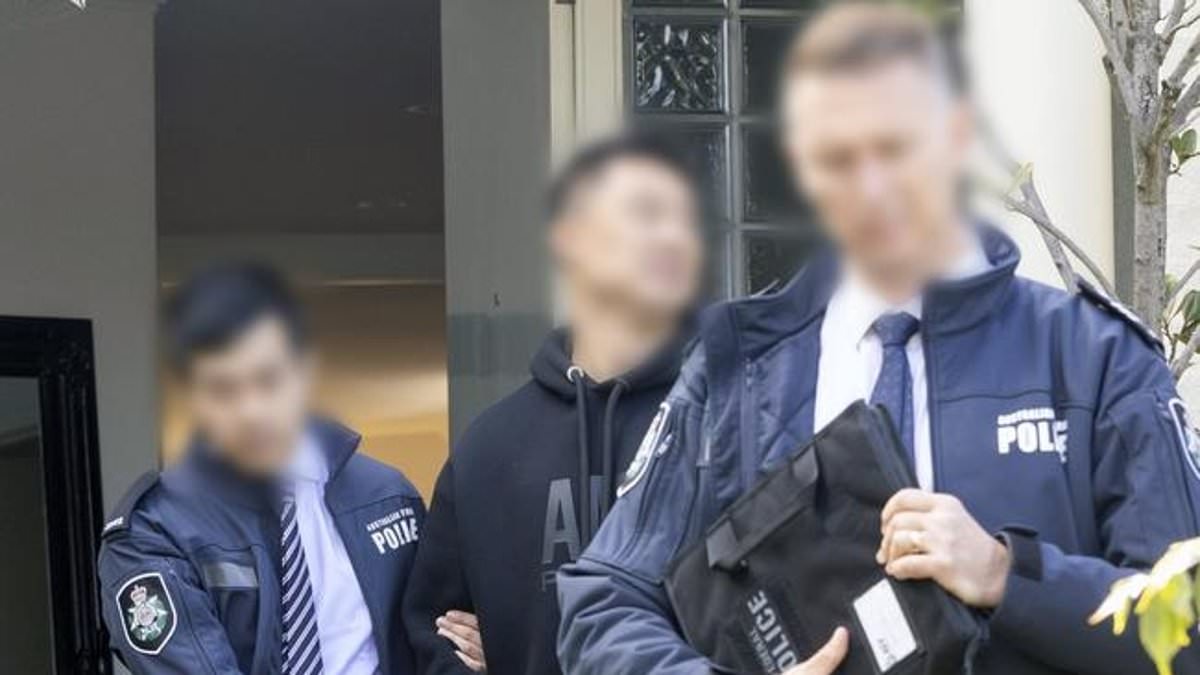A highly-sophisticated gang of Chinese money launderers who ‘hid in plain sight’ while allegedly turning over $10billion in three years have been busted by police.
The Changjiang Currency Exchange, which is known by criminals as the Long River syndicate, is alleged by police to be a front to wash criminals’ dirty cash and move it offshore.
It used legitimate shop fronts to conceal proceeds from organised crime groups dealing in drugs, illegal tobacco and fraud.
Beyond complex money laundering, it also allegedly operated as a one-stop-shop for organised criminals, teaching them how to set up a fake paper trail to evade detection from authorities.
The network, which had 12 centres across Australia, has been dismantled by the Australian Federal Police (AFP) who arrested seven alleged ringleaders in Melbourne’s eastern suburbs on Wednesday.
The Changjiang Currency Exchange (pictured), which is known by criminals as the Long River syndicate, is alleged by police to be a front to wash criminals’ dirty cash and move it offshore
Cops raided 20 properties in Sydney, Melbourne, Brisbane, Adelaide and Perth
The four Chinese nationals and three Australian citizens are accused of laundering almost $230 million in dirty money – although the actual figure is believed to be far higher.
They allegedly using the proceeds to buy lavish $10million properties, $94,000 Rolex watches and $400,000 Mercedes SUVs.
It is alleged they even had plans to develop a suburb near Sydney’s second airport to launder even more cash.
Cops raided a total of 20 properties in Sydney, Melbourne, Brisbane, Adelaide and Perth.
Stephen Dametto, AFP Assistant Commissioner, said the Long River syndicate had become ‘one of the largest independently-owned remitters in the country’.
‘The reason why this investigation was so unique and complex was that this alleged syndicate was operating in plain sight with shiny shop fronts across the country – it was not operating in the shadows like other money laundering organisations,’ he said.
Over 40 AFP officers worked on the 14-month-long operation alongside five forensic accountants and undercover operatives.
The syndicate came to the attention of AFP officers when it opened new shopfronts in Sydney’s business district during lockdown while others in the area were closing.
The four Chinese nationals and three Australian citizens are accused of laundering almost $230 million in dirty money and using the proceeds to buy lavish $10 million properties (above), $94,000 Rolex watches (below) and $400,000 Mercedes SUVs
Ringleaders also splurged their alleged ill-gotten gains on luxury cars (pictured)
‘It was just a gut feeling – it didn’t feel right,’ AFP Assistant Commissioner Stephen Dametto told the paper.
‘During COVID-19, AFP members were still coming into work, and while most of Sydney was a ghost town, alarm bells went off among our money laundering investigators when they noticed Changjiang Currency Exchange operating two new shopfronts in the heart of Sydney.’
‘Many international students and tourists had returned home, and there was no apparent business case for Changjiang Currency Exchange to expand.’
The currency exchange’s website still claims that it is above board despite the police bust.
‘Changjiang is a legitimate operating company approved by the Commonwealth of Australia, and the financial registration number for the Financial Transactions Report and Analysis Center (AUSTRAC) in the Australian capital is 100-572684,’ the website claims.
‘We are registered with AUSTRAC on the Remittance Sector Register and are subject to obligations under the Anti-Money Laundering and Counter-Terrorism Financing Act 2006. You can check our registration status on the AUSTRAC website.’
